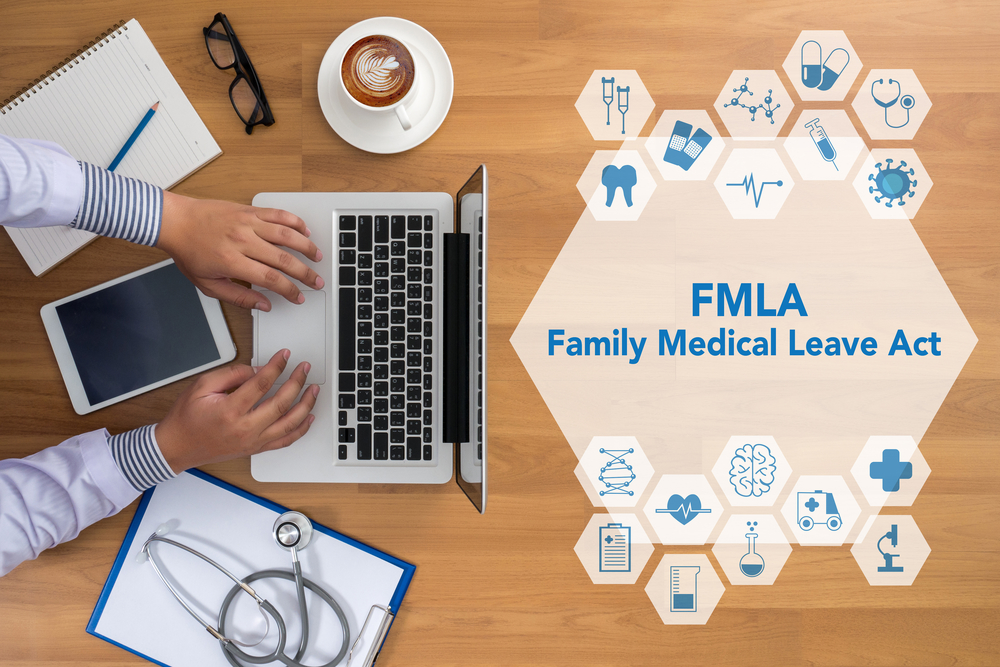FMLA is one of the thorniest issues that our HR directors deal with – there are many sticky issues. Because of this, once or twice a year, we gather new resources, articles and tools that have caught our eye. Our last Family Medical Leave Act post was in August – here are some resources we’ve identified since then.
First, every year Family Medical Leave Act guru and employment law attorney Jeff Nowak posts an important resource for HR professionals and employment attorneys on his blog. The American Bar Association’s annual report of every FMLA decision from 2017
Next up, we found an excellent Family Medical Leave Act: Primer for HR by Rita Zeidner, SHRM.
Even after 25 years, the rules—particularly those allowing time off to be taken sporadically or with little or no advance notice—remain cumbersome and confusing. Managers often struggle to cover for people who take extended leave. And the risk of being sued by an employee claiming to have been unfairly denied leave or punished for taking it keeps many HR professionals on edge.
But as tricky as the compliance issues can get, it’s important not to lose sight of why the law exists. The human toll of a health challenge can be enormous. That’s why it’s vital for HR to be discreet and supportive of employees who need leave.
To help you get a handle on the most vexing issues, here is a primer for complying with the FMLA.
In our third item, we note that in June of 2017, DOL Withdrew Joint Employer and Independent Contractor Guidance: Labor Secretary Alexander Acosta announced the withdrawal of two Wage and Hour Administrator’s Interpretations (AI) on joint employment and independent contractors. One involved an AI issued in January 2016, established new standards for determining joint employment under the federal Fair Labor Standards Act (FLSA) and the Migrant and Seasonal Agricultural Worker Protection Act (MSPA).
Next up: note that in there may be a tax credit under the recent tax law changes. See: Employer FMLA Tax Credit
New Tax Law Impact on Employee Benefits and Compensation
Federal Tax Reform Adds Tax Credit for Paid Family Medical Leave
Finally, note that FMLA turns 25 this year, and employers must be vigilant as ever
Articles on case law, best practices and more
- HR Daily Advisor: The FMLA and Intermittent Leave: Proceed with Caution
- HR Morning: Top 5 ways to prevent intermittent leave abuse
- FMLA Insights: When You Don’t Train Your Managers, You’re Begging for This Kind of Smackdown
- HR Daily Advisor: Can an Individual Supervisor Be Liable Under the FMLA?
- HR Morning: 7 stupid words that could cost this employer big
- JD Supra: Avoiding Mistakes in Responding to Accommodation Requests
- HR Morning: 3 things managers can’t say after FMLA requests
- HR Daily Advisor: FMLA is Not a Tool Employees Can Use to Delay Termination
- HR Daily Advisor: Think You Can’t Terminate an Employee on FMLA Leave? Think Again
- FMLA Insights: If an Employee Racks Up Both FMLA and Unexcused Absences, Can He Be Terminated?
- JD Supra: Interplay of FMLA and ADA Precludes Employers From Automatically Terminating Employees at End of Leave
- HR Dive: Is it time to change how we talk about the Family Medical Leave Act?
- HR Daily Advisor: How Much Leave Is Too Much?
- FMLA Insights: Not One, But TWO Court Decisions That Scale Back an Employee’s Right to Take Additional Leave After FMLA is Exhausted
- HR Daily Advisor: Forged Doctor’s Note Triggers Fraud Investigation
- Ohio Employers Law Blog: Wait, an employer can’t fire an employee on FMLA leave caught on Facebook on vacation?
- FMLA Insights: Next Time You Want to Conduct FMLA Surveillance on Your Employee, Have a Good Reason Why
- FMLA Insights: Complying with the FMLA and ADA When Your Employee is Dealing with a Mental Health Condition – Includes links to a webinar
- HR Daily Advisor: Is Postoperative Care Considered a Serious Health Condition?
- HR Daily Advisor: FMLA leave for school-related activities and child care
- HR Daily Advisor: Ask the Expert: Siblings Aren’t Covered Family Members … Are They?
- Ohio Employers Law Blog: The FMLA does not cover dead pets (maybe)
- FMLA Insights: When Is an Employer Required to Check for Eligibility? The Answer May Surprise You!
- HR Dive: Your cheat sheet to notice requirements
- FMLA Insights: How Do Employers Calculate Leave Around the Holidays?
- HR Daily Advisor: Health Benefits During Leave: Who Pays?

